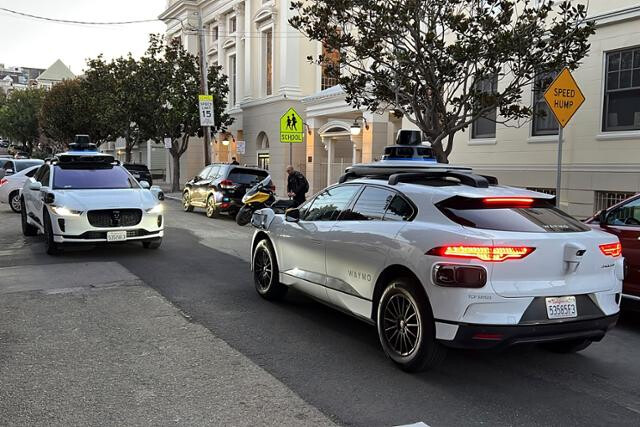
Waymo, a subsidiary of Google, has officially launched its robotaxi service in Atlanta, Georgia, in cooperation with ride-sharing service Uber. This coincides with Tesla's declaration of entry into the autonomous driving taxi market, signaling an intensification of global competition in the autonomous driving sector.
Waymo enabled Atlanta citizens to use its robotaxis through the Uber app starting June 24 (local time). The service area covers approximately 168 square kilometers (about 65 square miles) in downtown Atlanta, excluding highways and the airport. Waymo formed a strategic alliance with Uber in September of last year and began its first collaborative service in Austin, Texas, in March of this year. This Atlanta service is the second city for their collaboration after Austin, focusing on passenger transport and not including Uber's food delivery service, Uber Eats. Initially, dozens of robotaxis will begin operation, with plans to gradually expand the number of vehicles in the future.
Tesla's Robotaxi Launch Declaration and Waymo's Strategic Expansion
Waymo's Atlanta service launch comes shortly after Tesla began pilot robotaxi operations in Austin with Model Y vehicles equipped with the latest autonomous driving technology. Elon Musk, CEO of Tesla, officially declared August 8 as 'Robotaxi Launch Day,' announcing that after a decade of arduous effort, autonomous driving taxis have entered the commercialization phase. Tesla is currently offering a paid service in a limited area in Austin to social media influencers with approximately 10 vehicles.
While Tesla aims to build its own robotaxi network based on 'Full Self-Driving (FSD)' technology, Waymo is adopting a strategy of leveraging its long-standing accumulated autonomous driving technology expertise and collaborating with existing ride-sharing platforms like Uber to enhance service accessibility. This is interpreted as an effort to quickly gain market share by utilizing each company's strengths.
Waymo's Overwhelming Operational Experience and Future Expansion Plans
Currently, Waymo possesses the most extensive and in-depth autonomous driving service operational experience in the United States. It already provides commercial services in San Francisco, Los Angeles, Silicon Valley, and Phoenix, and plans to expand into the East Coast region, including Washington D.C., in 2025. It is also exploring service possibilities by recently conducting tests in New York.
Waymo currently owns over 1,500 autonomous vehicles across the U.S. and, as of June 2024, has recorded over 10 million cumulative paid rides. Weekly operations amount to 250,000 rides, a figure that far surpasses other autonomous driving companies. This rich data and operational experience contribute to further enhancing the stability and reliability of Waymo's autonomous driving system.
Deepening Competition in Autonomous Driving Technology and Future Outlook
In addition to Tesla and Waymo, numerous companies, including GM's Cruise and Amazon's Zoox, are fiercely competing in the development and commercialization of autonomous driving technology. Each company is pursuing strategies to preempt the market through unique technology development paths and business models.
Tesla is advancing its autonomous driving technology based on its self-developed FSD software and large-scale operational data, proposing robotaxis as a core future business model. Tesla's approach is to generate revenue by combining vehicle sales with a software subscription model.
Conversely, Waymo focuses on ensuring high safety through sensor technology that combines LiDAR, radar, and cameras, along with precise maps. Collaboration with existing platforms like Uber is expected to lower initial market entry barriers and be advantageous for securing a large user base.
The advancement of autonomous driving technology is expected to bring various positive effects, such as increased traffic efficiency, reduced accident rates, and improved mobility convenience. However, there are also numerous challenges to overcome, including technological limitations, legal and regulatory issues, and securing social acceptance. Nevertheless, the proactive movements of global companies, led by Tesla and Waymo, are expected to further accelerate the advent of the autonomous driving era. The expansion and competitive landscape of robotaxi services are expected to unfold even more interestingly in the future.
[Copyright (c) Global Economic Times. All Rights Reserved.]






























